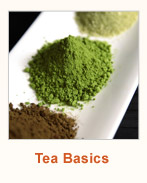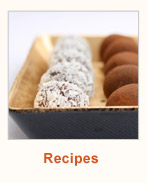
Okinawa - The Longevity Island
Known as the Longevity Island, Okinawa is home to the world's highest known concentration of centenarians. Data reveals that Okinawans not only enjoy one of the world's longest life expectancies, but a remarkable ability to age successfully and significantly disease free.
The evidence is dramatic. The Okinawan Centenarian Study reported that compared to North Americans, Okinawans suffer 80 percent fewer incidences of breast and prostate cancers, and less than half the ovarian and colon cancers. In addition to extremely low rates of hormone-dependent cancers, Okinawans also have significantly lower rates of diabetes and heart disease.
It certainly seems that this lush subtropical island in the Pacific Ocean holds some powerful longevity secrets. What lessons can we learn from the elders of this haven for long, healthy living?
The Okinawan Lifestyle - A Longevity Prescription
After many years of well documented research, the longevity factor seems to boil down to one thing — the Okinawan lifestyle. Okinawans have somehow been able to transform the most basic principles of proper diet, daily exercise and spirituality into a proven prescription for living longer and aging more successfully.
Adhere to a Well Balanced, Nutrient-Rich Diet
The Okinawan diet is low in caloric density and red meat, and high in seasonal fruits and vegetables, fish, whole grains, and lean proteins, including soy. To learn more about the Okinawan diet, please read the best-selling book "The Okinawan Diet Plan" by doctors (and brothers) Bradley and Craig Wilcox, co-principal investigators of the Okinawa Centenarian Study. Basically, vegetables and fish make up the bulk of the Okinawan diet. Eating seasonally allows for constant changes in caloric intake and the consumption of fresher, riper and more flavorful foods, which helps promote resistance to chronic disease. Also, the omega-3 fatty acids in fish reduce inflammation which protects against a host of conditions including heart disease, depression, arthritis and Alzheimer's.
Maintain Weight
Okinawan centenarians not only maintain a healthy body mass index (BMI), staying lean throughout their lives, but also sustain a stable weight as well. They eat fewer calories than they burn during the day. Count calorie density rather than food volume.
Drink Turmeric and Sanpin Teas
Turmeric (curcuma longa), an herb of the ginger family and native to tropical South Asia, is attracting the attention of the scientific and medical communities for its powerful anti-inflammatory and antioxidant properties. Okinawans drink copious amounts of turmeric tea daily. In addition, Okinawan elders also favor sanpin tea, an antioxidant-rich form of jasmine green tea, over other green teas popular throughout Japan and China. Recent studies show that sanpin tea's high antioxidant EGCG levels stimulate the body to burn calories, most notably fat. Click here to learn more about turmeric and sanpin teas or to purchase a variety of authentic teas from Okinawa.
Think of Food as Medicine
In addition to diet, Okinawan's attitude about food plays a vital role in their longevity. Okinawans refer to their food as "kusuimun" or "nuchigusui", which means "medicine" or "medicine for life". Food that doesn't contain healthful qualities is deemed worthless.
When older Okinawans reconnect with their children and grandchildren after a time apart, their greeting is likely to be, "Are you eating good food?" To Okinawans, eating good food means eating a daily diet that will help prevent illness and disease. When the elders say "food", they are not referring to gourmet dishes or popular delicacies, but instead they mean food that is healthy for the body with curative powers.
Eat Mindfully
Don’t overindulge. Only fill up 80 percent! Okinawans never announces they are stuffed after a meal. So as not to feel deprived, instead they say, “Hara hachi bu,” which literally translates to “80 percent full.” Dr. Bradley Wilcox explains, "It takes about 20 minutes for the body to signal the brain that there's no need for more food. Hara hachi bu gives the brain a chance to catch up."
Make Exercise a Daily Ritual
For Okinawans, exercise is a way of life and elders are surprisingly fit. Martial arts, lots of walking and gardening, tai chi, and traditional dance, which many Okinawan men and women learn at an early age, are daily rituals. Exercise also increases energy levels and reinforces a sense of community, connection and purpose. They also exercise in the evenings, relieving the day’s tension and priming the body for a restful night’s sleep.
Get More Sleep and Take Naps
Okinawans tend to go to bed earlier and report taking short naps throughout the day. This has led researchers to conclude that staying up late and then waking too early could be hazardous to physical and mental health. In addition, studies show that lack of sleep can lead to overeating, reduced cognitive function, and even depression.
Give Meals Personal Significance
Okinawans look for meaning in the foods they eat, not convenience. They enjoy mealtimes as a way to reconnect and strengthen family bonds and believe that eating separately tends to weaken these ties. Eating good food together is social exchange that promotes health and healing rather than a source of emotional gratification.
Foster a Sense of Community
Most older Okinawans have an independent spirit and manage very well on their own. They enjoy strong family and community support and stay in close, significant contact with those around them. About 80 percent of Okinawa's elderly live alone or with their spouse, requiring no hospital or nursing home care. Living alone in Okinawa does not mean loneliness as older people live in a community of mutual care and assistance. There is constant visiting back and forth with children and grandchildren in the cities, attending local festivals, bringing vegetables, homemade treats and healing foods to friends, attending dances and recreational activities.
Healthy centenarians all over the world are usually very socially involved. Ironically, since many centenarians outlive their children, neighbors, friends and community acquaintances become extremely important.
Find a Purpose
In the Okinawan dialect, there is no word for "retirement". Instead there is another word, "ikigai", which translates roughly to "purpose" or "that which makes one's life worth living." Okinawans live with a sense of purpose whether nurturing their vegetable garden, working at a pineapple plant, or raising a happy, healthy family.
Set and Fulfill Goals
Okinawan elders often refer to themselves as being “gujah”, or having a strong-willed character. This means doing everything in their power to define and achieve their goals, fully aware that they, and no one else, are responsible for attaining them. With this mindset, Okinawans hold themselves accountable for their own successes and failures. It is this fierce determination that helps them succeed and achieve whatever goals they have set for themselves.
Learn to Embrace Change
In addition to being "gujah", older Okinawans are also extremely adaptable and highly resilient when faced with challenging or unexpected circumstances. They worry less, recognizing that facing challenges, overcoming setbacks and solving problems helps keep the mind cognitively aware, mentally strong and creatively sharp. Okinawans embrace change and the chance to create more fulfilling opportunities in the future.
Cultivate Spirituality
Spirituality also plays a major part of Okinawan life, and may explain why centenarians are better than most at releasing daily problems. Social scientists observe that religion and faith in general are often what keep many centenarians feeling balanced and protected from life’s troubles. In addition to religious affiliations, Okinawans seek out other group activities such as dance clubs, friendship circles or gardening clubs that include like-minded people.
The Big Secret - It's All About Balance
A well balanced life is truly the secret to a long life!



















